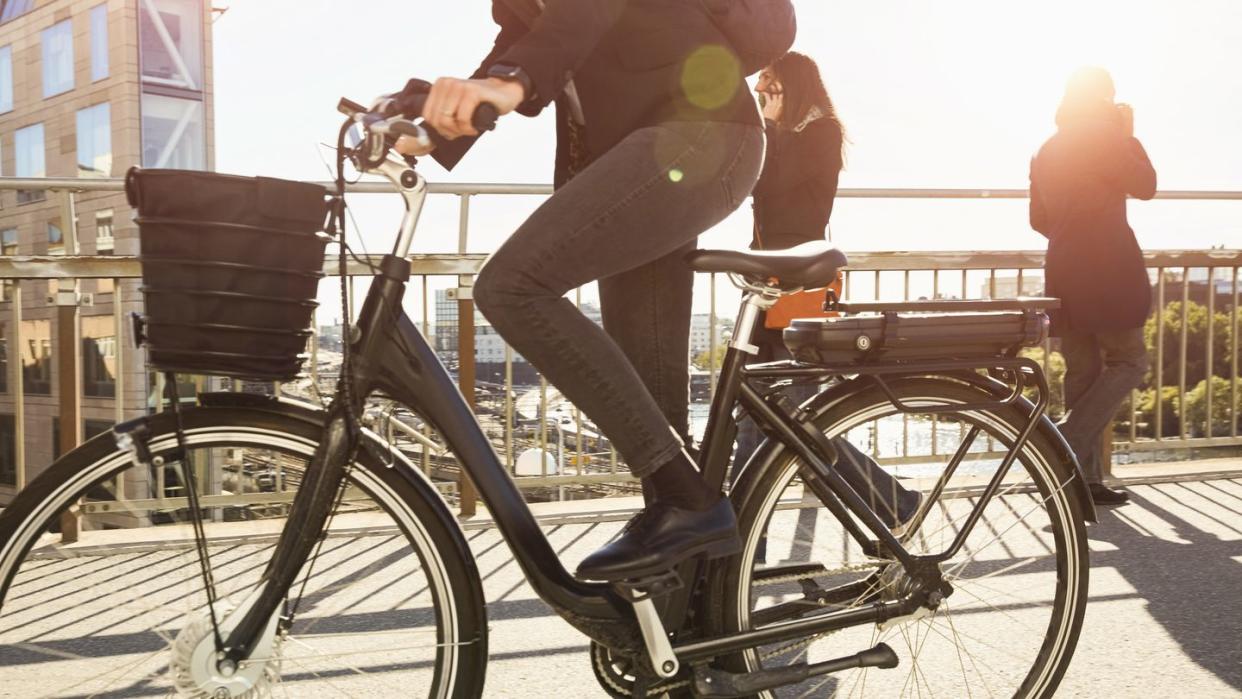Are New E-Bike Regulations and Standards Coming?

The Consumer Product Safety Commission (CPST) may be regulating some parts of e-bikes—namely, the lithium batteries that power them—in the near(ish) future. While standards likely won’t come into play until late 2025, steps are being taken now to make the e-bike market safer and more clear for consumers to navigate.
According to BicycleRetailer, earlier this week at the PeopleForBikes’ SHIFT’23 conference in Bentonville, Arkansas, CPST Commissioner Mary T. Boyle told the audience that the Commission understands the need for regulations around lithium batteries for e-bikes and other e-assist devices, and change is coming.
“I’m happy to announce we are poised to consider regulatory regulations for micromobility devices across the board, including e-bikes,” Boyle reportedly said. “We’re going to propose mandatory requirements for batteries in micromobility products.”
The need for regulation stems from a growing concern over fires caused by the lithium batteries that power e-bikes. Aftermarket batteries and chargers in particular have caused many lethal fires across the country, most notably in New York City. According to TechCrunch, by July of 2023, there were been 114 investigations into fires caused by lithium ion batteries resulting in 74 injuries and 13 deaths in NYC alone.
In her talk at SHIFT, Boyle added that the rules and regulations would be slow to come, though. The CPST is in the proposal stage of coming up with new regulations, and it will be at least a year before the proposal is brought before the commission as a whole. “If the industry comes into compliance with voluntary standards that are in place now, that will be a really helpful part of the process,” she added, tasking the bike industry with some homework.
In the meantime, NYC has added a trade-in program for batteries and the NYC fire department continues to try to educate people about the best charging practices and potential hazards with lithium batteries.
The FDNY urges New Yorkers to follow these lithium-ion safety tips to ensure the safety of you, your family, and our first responders. Make sure these devices do not block exits, do not leave devices unattended while charging, and do not tamper with these batteries. pic.twitter.com/pJl7inmlWK
— FDNY (@FDNY) September 22, 2023
If the CPSC does regulate batteries, don’t expect those changes to come until 2025 at the earliest. The proposal has to be accepted by the commission, then opened up to public comment, then put into a final set of rules and regulations that need to be approved.
Boyle also pointed out the need for rules and regulations around the differences between e-bikes with pedal-assist versus those without, and e-bikes with throttles or without throttles. Top speed possible with e-assistance alone is also a question—she noted that in Europe, speeds are capped at 15.5 MPH, while in the U.S., they’re capped at 20.
And of course, there are issues with motorbikes that are entirely electric and don’t use pedal power that are still being marketed as bikes. Really, it’s a regulatory minefield in the e-bike industry right now.
Boyle ended with a call for positivity around e-bikes, rather than fear. Safety, she said, must be paramount, but adding regulations doesn’t mean that e-bikes are inherently bad or unsafe. From the industry perspective, she added, “You need to be thinking about young riders and senior riders, and you need to be thinking about how fast is too fast, thinking about what your brake systems are... I think we’re at a pivot point to make sure that positivity remains and that safety is front and center.”
You Might Also Like

